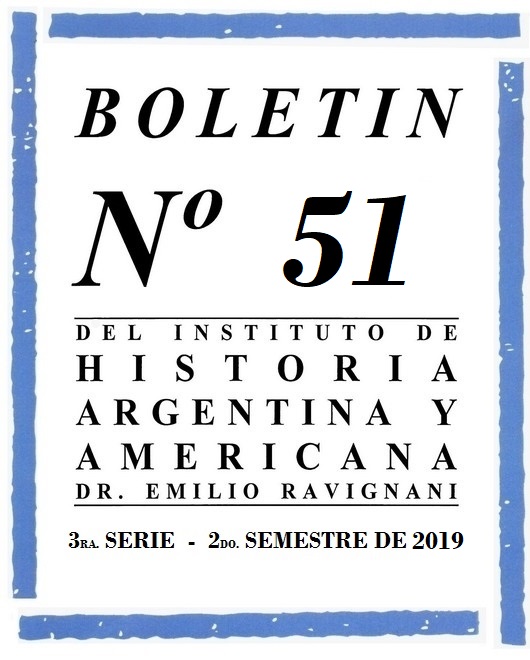Provincial Reformists at the Turn of the Century: Practical Politicians, Parties, and Representative Government (Mendoza, 1880-1903)
Abstract
The purpose of this article is to problematize the definition of “elector government”, and to interpret the role of the opposition and party rivalry during the reform of the representative government of the province of Mendoza at the end of the 19th century. In order to do that, two political trajectories of provincial politicians are taken into consideration in the same way that the recent political historiography has outlined key aspects of the Argentine political regime between 1880 and 1916. In particular, the article analyzes the role of school sociability and extraterritorial mobility in the formation of local leaderships, the relationships cultivated in the university classrooms during the political journeys after graduation, the different access to political activity and public offices, the growing role of political parties, and the ways of interpreting and intervening in the reformist atmosphere that upset the foundations of the provincial and national political regime at the turn of the century. The results of the research emphasize certain aspects that were not noticed at all by classical historiography, such as the relative permeability of the elites in the 19th century, and the provincial reform initiatives designed to provide stability and legitimacy to the political regime on the eve of the national electoral reform of 1912.Downloads
The copyright is transferred to the Boletín, but the authors may retrieve them and reproduce their work in other media or formats by means of a written request to the Editorial Committee. In such cases, the Boletín will be cited as the first publication of the work.
The works are licensed under a Creative Commons Attribution-NonCommercial 4.0 International License, which allows others to share the work with an acknowledgment of their authorship and initial publication in this journal.
Also, by written request to the Editorial Committee of the Boletín, the authors may separately establish additional agreements for the non-exclusive distribution of the version of the work published in this journal (for example, placing it in an institutional repository or publishing it in a book), with an acknowledgement of its initial publication here. No commercial uses are allowed.



















